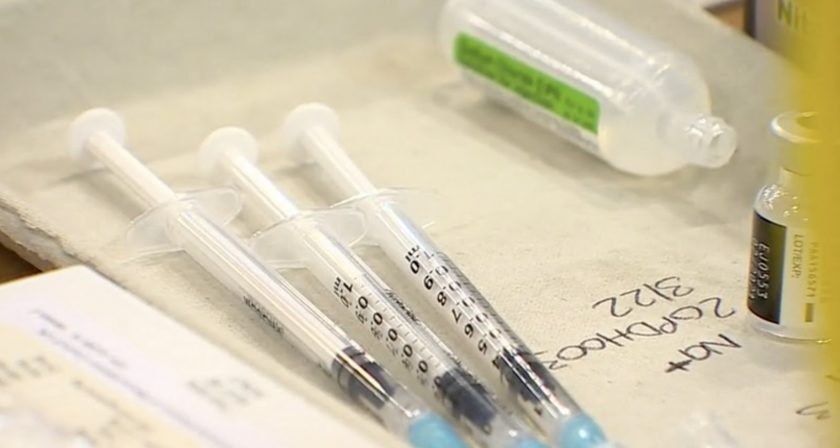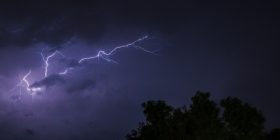Those most at risk in areas with localised outbreaks prioritised for monkeypox vaccination, health minister confirms

People in Wales most at risk of contracting monkeypox will be contacted directly by their health board, the Welsh Government has confirmed.
This includes those living in areas with localised outbreaks.
As of last week there had been 30 confirmed cases of monkeypox in Wales, however across the UK the figure is 2,759 in total.
The World Health Organisation has declared the spread of the infection to be a “public health emergency of international concern”, its highest alert level.
NHS Wales has already been vaccinating some of those eligible for the monkeypox vaccine, who are:
- Gay, bisexual and other men who have sex with men (GBMSM)
- Frontline healthcare staff who are at greatest risk of exposure
- Those who have been in close contact with a confirmed case, in line with the UKHSA (UK Health Security Agency) advice
There has already been accelerated rollout of the vaccine in London where most of the cases of the infection have been identified. NHS teams in the London area will receive additional doses from the existing supply in an effort to break the chains of transmission as quickly as possible.
As a result only those most at risk in areas with localised outbreaks are being prioritised for vaccination in the rest of the UK.
People who fall within this category in Wales will be contacted directly by their health board.
In a written statement, Eluned Morgan MS, Minister for Health and Social Services and Hannah Blythyn MS, Deputy Minister for Social Partnerships, said: “The monkeypox vaccines are not produced to be routinely used in any country, so global supplies have been limited.
“Because of the limit on supply, the four UK Chief Medical Officers have agreed, in the short term, to the UK wide outbreak management approach, proposed by UKHSA. This means vaccine deployment will be prioritised where there are localised outbreaks.
“For Wales, like the rest of the UK, this means in the short term, only those most at risk in areas with localised outbreaks are being prioritised for vaccination. People who fall within this category in Wales will be contacted directly by their health board.
“This is a temporary measure until more vaccine is delivered.
“Last week, the UKHSA announced that they had procured more than 100,000 additional vaccine doses with the first 20,000 set to be delivered for use by the NHS in August. We are working closely with the UKHSA to ensure Wales’ share of the vaccine is available for deployment as soon as possible.
“Those next in line will be offered the vaccine as soon as it becomes available and we urge all those who are eligible for the vaccine to take it up when invited by health boards to a vaccination appointment. It will help protect yourself and others you have had close contact with.
“We are seeing the majority of monkeypox cases in the current outbreak experienced by gay, bisexual and other men who have sex with men. We want to reassure this community that their interests are our priority.
“Everyone is being asked to be aware of the symptoms of monkeypox, regardless of sexuality, however it is clear that some groups are at increased risk. We are keen to avoid a situation where fear of stigma prevents individuals from accessing health care services or asking for help. It is important that we do not allow stigma or misinformation do more harm than the virus itself.”
Last week the UKHSA announced that in “light of clinical experience during this outbreak it is updating the case definition for monkeypox.”
The expanded symptom list includes “a single lesion or lesions on the genitals, anus and surrounding area, lesions in the mouth, and symptoms of proctitis (anal or rectal pain or bleeding), especially if the individual has had a new sexual partner recently.
If you get infected with monkeypox, it usually takes between five and 21 days for the first symptoms to appear.
The first symptoms of monkeypox include:
- Fever
- Headache
- Muscle aches
- Backache
- Swollen glands
- Shivering (chills)
- Exhaustion
A rash usually appears 1 to 5 days after the appearance of fever, often beginning on the face, then spreading to other parts of the body including the genitals, hands and feet. The rash changes and goes through different stages, and can look like chickenpox, before finally forming a scab, which later falls off.
The symptoms usually clear up in two to four weeks.
Monkeypox can be spread when a person comes into close contact with a person infected with the virus or contaminated items the infected person has touched.
The virus enters the body through broken skin (even if not visible), respiratory tract, or the mucous membranes (eyes, nose, or mouth).
Person-to-person spread is uncommon, but may occur through touching clothing, bedding or towels used by an infected person, touching monkeypox skin lesions or scabs, particularly if your own skin has sores or cuts and the coughs or sneezes of an infected person.
The majority of people with monkeypox can safely manage their symptoms. Most people experience mild disease but it can cause a significant illness in some, requiring hospitalisation, including for severe pain.
The ministers added: “We should all be aware of the risks and symptoms of monkeypox and be careful when attending events and situations where close contact may occur.
“People concerned about symptoms should contact NHS 111 or a sexual health service. Further information is available on the Public Health Wales website.
“While the World Health Organisation has now declared the monkeypox outbreak a public health emergency of international concern, and although more people have been diagnosed with monkeypox recently, the number of people affected overall in Wales, and the UK, remains low and the risk of catching monkeypox is extremely low.
“It is important also to be aware that evidence shows that the virus is treatable, and whilst there are specific antiviral treatments available for monkeypox, the illness is usually mild. Most of those infected will not require treatment and will recover by themselves within a few weeks.
“However, Public Health Wales and partners continue to monitor the situation in Wales on an ongoing basis and work with UKHSA on the response.”
If you think you have monkeypox symptoms – however mild you should contact NHS 111 or call a sexual health clinic immediately – and avoid close personal or sexual contact with others until you’ve consulted a medical professional.
Spotted something? Got a story? Email [email protected]













